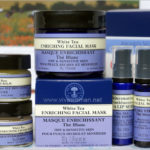
Share: what skincare ingredients do you avoid?
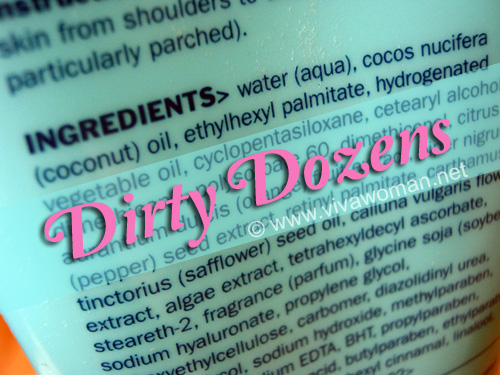
Last week, I asked about your favorite skin care ingredient and this week, I thought I’ll continue by asking what skin care ingredient do you avoid and why? Even though I’m more inclined towards using natural and organic skin care, regular readers know that I’m not a purist. While I have a Top 10 skin care ingredients that I avoid but as a whole, I do not avoid them from a toxic standpoint but rather, a beauty standpoint such as fear of photosensitivity or skin suffocation. I can even accept some ingredients that are listed as the “dirty dozens” in my skin care and one of them is the much flogged-to-death parabens.
So which ingredients turns me off TOTALLY such that I would not consider using the product? Let me mention my top 3 ‘NO-NOS’:
1. Silicones
If I spot names such as Dimethicone, Dimethicone Copolyol or Cyclomethicone in a skin care product, I will not use the product. This is because silicone emollients are occlusive and are used to create a watertight film on top of the skin to lock in moisture. While they make application smoother, these compounds coat the skin, making it impossible for the skin to breathe. This is why they are often described to be like a plastic wrap suffocating the skin and trapping anything beneath it. Prolonged usage can cause skin irritations and breakouts for some people. In addition, it also means it would be difficult for any of your skin care goodies to penetrate into your dermis layer effectively, which I believe causes products to become ineffective after a period of time. Seriously, I don’t care what the other camp says in terms of the benefits of this ingredient but I definitely avoid it in all my skin care products.
2. Sulfates
All my facial cleansers, body wash and even shampoo do not contain Sodium Lauryl Sulfate (SLS) and or Sodium Laureth Sulfate (SLES) as these harsh detergents that can leave our skin too dry. I used to prefer my facial wash to provide a ‘squeaky clean’ feeling after every wash but after I learnt this is actually stripping my skin of its natural lipid, I’ve since been more selective and use only sulfate-free products. Even then, I will have no qualms junking a facial wash if I feel it is over cleaning my skin.
3. Alcohol
As a whole, I avoid any products containing alcohol. Those like ethanol, ethyl alcohol, denatured alcohol, methanol, benzyl alcohol, methyl alcohol, isopropyl alcohol, and SD alcohol are solvents derived from petroleum and are extremely drying and irritating to the skin. With prolonged usage, these may strip the skin’s natural immune barrier, promote the formation of brown spots and cause premature aging of the skin. I also used to avoid plant derived alcohol such as cetyl alcohol, stearyl alcohol, cetearyl alcohol but I realized it was becoming difficult to avoid as many natural and organic skin care products use these ingredients. So I use products containing these plant derived alcohol as long as I do not see them bunching right on top of the ingredient list.
Just noticed that in reversed order, they are collectively known as ASS! (^▽^)
Striving to avoid using makeup products containing silicones & alcohol
I used to avoid these ingredients only in my skin care but would continue to use makeup products containing them, in particular silicones and alcohol. Increasingly however, I’m moving towards using natural or organic cosmetics that do not contain any silicones or alcohol. I’m not fully there yet but I’ll get there someday soon because it’s about time I set a stricter standard for my skin!
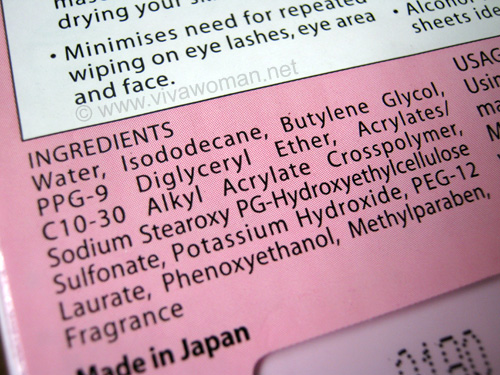
The Dirty Dozens
By the way, here are 12 ingredients, which are widely known as “the dirty dozens” that are generally avoided in organic formulations. However, there are more than these 12 toxic ingredients in reality.
1. Butylated hydroxyanisole (BHA) & butylated hydroxytoluene (BHT): Used as a preservative in moisturizers and makeup. Suspected endocrine disruptors, may cause cancer (BHA), harmful to fish and wildlife.
2. Coal tar dyes: Used in hair dyes and other products containing artificial colorants. May cause cancer, possible contamination of heavy metals toxic to the brain. Look for “CIâ€, “FD&C Blue No. 1â€, or “Blue 1†on labels.
3. DEA: Used in creamy and foaming products (i.e. moisturizers, shampoos). May for nitrosamines which could cause cancer, harmful to fish and wildlife. Look for “DEAâ€, “MEAâ€, and “TEA†on labels.
4. Dibutyl Phthalate (DBP): Used as a plasticizer in some nail products. Suspected endocrine disruptor and reproductive toxicant, harmful to fish and wildlife.
5. Formaldehyde-releasing preservatives: Slowly release small amounts of fomaldehyde, a known carcinogen. Look for DMDM hydantoin, diazolidinyl urea, imidazolidinyl urea, methenamine and quarternium-15 on labels.
6. Parfum/Perfume/Fragrance: Used in a wide variety of products. May trigger allergic reaction, asthma, has been linked to cancer and neurotoxicity, harmful to fish and wildlife.
7. PEGs: Used in many cream-based products. May be contaminated with 1,4-dioxane, which may cause cancer. Look for “propylene glycolâ€, and ingredients with “eth†(e.g., polyethylene glycol) on labels.
8. Petrolatum: Used as a moisturizing ingredient and moisture barrier. May be contaminated with polycyclic aromatic hydrocarbons, which may cause cancer.
9. Siloxanes: Used in a variety of cosmetics to soften, smooth and moisten. Suspected endocrine disruptor and reproductive toxicant (cyclotetrasiloxane), harmful to fish and other wildlife. Look for ingredients ending in “-siloxane” or “-methicone” on labels.
10. Sodium laureth sulfate: Used in foaming cosmetics, such as shampoos, cleansers and bubble bath. May be contaminated with 1,4-dioxane, which may cause cancer. Look for sodium lauryl sulfate and other ingredients with the letters “eth” (e.g., sodium laureth sulfate) on labels.
11. Triclosan: Used in antibacterial cosmetics, such as toothpastes, cleansers and deodorants. Suspected endocrine disruptor and may contribute to antibiotic resistance in bacteria, harmful to fish and other wildlife.
12. Paraben, Methylparaben and propylparaben: Used in a variety of cosmetics as preservatives. Suspected endocrine disruptors and may interfere with male reproductive functions.
So how about you? Do you avoid any ingredients in your skin care products? If so, share your views!
Comments
Leave a Reply
You must be logged in to post a comment.

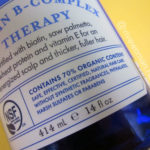









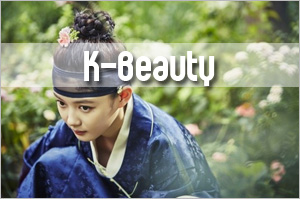
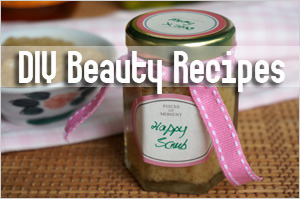
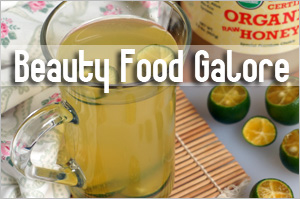
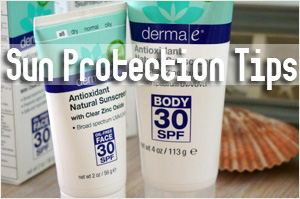
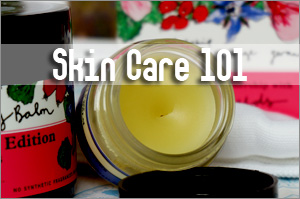
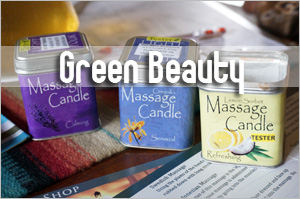
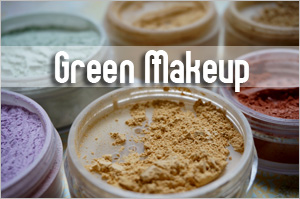
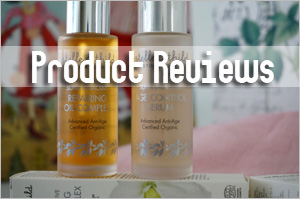
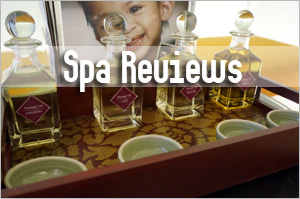
I avoid almost the same ingredients. Silicones and petrolatum EWWW!
Well, except the parabens, because it’s not as dangerous as the people think. They usually are in sooooo much low quantity…
And also, not to mistake BHA (salicylic Acid) and the other BHA (the dangerous one): Butylated hydroxyanisole.
I avoid silicones because I’m afraid of them suffocating my skin, same thing they did to my hair. I also avoid formaldehyde-releasing preservatives because they remind me of corpse preservation… the idea gives me the creeps. I’m also not comfortable using products with too much parabens in it or if the parabens are listed somewhere in the middle. Been avoiding SLS, too, as I have keratosis pilaris (chicken skin condition) on my arms and I realized SLS makes it worse.
BHA like Beta Hydroxy Acids? O.o
I am avoiding petrolatum for lip balms (actually, I buy and don’t use often unless I am travelling).
I avoid alcohol for toners and facial mists. Anything liquid. For other kinds of skincare and cosmetics, I would tend to think that the content is low and not so disasterous.
I NEED to avoid SLS in my shower gels as the doc says my skin if prone to inflammation. And she thinks many of the products nowadays although indicated Soap Free are actually not really Soap Free. She recommended me Hospigel but the thing cost $10 for 180ml which is not very economical. Still in search for a cheap and good alternative…
Btw, I got the Clarisonic! It’s wonderful as everybody suggested! Reduced my pore size the first time I used it.
I avoid the ‘ASS’ ingredients too in my skincare. For my hair, sulfates and silicones are a no-no too.
As much as I would like to avoid the ASS ingredients in my makeup, its rather difficult as so many makeup products in the market contain them.
If you have good recommendations on organic or natural makeup, please share on your blog, thank you!
I try to avoid silicones in my products though I find that it’s hard to, especially if you use Japanese skincare products. Even those high-end beauty products like SK-II contain rather high amount of Dimethicone (in the 7th or 8th position in the ingredient lists for most of their products). Now I am considering whether I should use SK-II products even though there are many raves on their whitening products. =( any advice?
I totally avoid petroleum, silicon and lanolin.
My skin hates them to the core. I used to have sensitive skin that gets problematic when I used products that contains these ingredients. After I switched over to the organic line, my skin cleared up so much to the point that my friends thought that I slept with makeup on during a chalet [i don’t even wear makeup].
For alcohol… So far, the products I use have no alcohol.
I avoid petrolatum too. Most lip products containing this ingredient doesn’t work well for me. Thanks for highlighting on BHA…it seems that others have been confused so I’ve since updated with the full name too.
SLS can be a big culprit for disrupting the pH balance of the skin. My husband had a major skin problem because he kept using something really harsh containing SLS.
It’s Butylated hydroxyanisole (BHA) as Ana has also pointed out. To avoid confusion, I’ve updated with the full name. Sorry for the scare.
With maybe one exception (Rosebud), I can’t use lip balms with petrolatum too…hate the waxy feeling.
Oh you’ve got a Clarisonic! Read so much raves on it…glad it’s working well for you. ?
Haha…ASS! ?
For makeup, I currently use mineral makeup so that is quite safe from the undesirable ingredients. One organic brand I tried and quite like is Zuii Organic and if you’re in Singapore, the brand is available in Bud Cosmetics. But it’s rather ex.
I heard quite a lot of raves on SK-II lotion. Personally, I’ve tried their products when they were first launched here but wasn’t too impressed. It’s not a brand I would use although the Pitera lotion seems quite good.
As a thumb of rule, I avoid most Japanese and Korean products.
Oh I don’t know why I am not so bothered with lanolin…maybe cos they’re usually listed at the end. I actually mind products using beewax more.
I used to be allergic to beeswax, then I realized it was the synthetic ones I’m allergic to.
Currently I’m using the badger sunblock for my body, and occasionally on my face when I’m doing sports, it contains beeswax but so far, I have no problems with it.
I remembered using a sample of organic sunblock from my friend [i can’t remember the brand] and it contained organic lanolin. After using it I got a rash. Even lipbalms containing lanolin will give me a rash. But the rash was not as bad as the ones I had when I used mineral oil.
You’re so fortunate you’re not allergic to lanolin. There were so many products I wanted to try out but I had to put it back because it contained lanolin.
Very useful info!
I didn’t even know how harmful these ingredients are until recently when a close friend of mine introduced my to an all-natural/organic beauty product line made from the Philippines. The brand name is Human Heart Nature but it is manufactured by a company called Gandang Kalikasan, Inc.
I also know now that parabens, Phenoxyethanol, TEA, BHA/BHT, DMDM Hydantoin which are usually used as preservatives (to make shelf life longer)for beauty products can cause pre-mature aging. How ironic right?
These ingredients MAY also cause cancer and tumors, and weakens our immune systems.
I’m happy to say that I have started to really become more conscious about the products I use on my body.
A question, do you know any natural shampoo that has a ph level of around 4.5~5? Or if not, do you know which ingredients make the ph levels in shampoos change?
Also it has been said that titanium dioxide could be linked to cancer, do you agree?
I see…I should try to read up more about lanolin; have never paid much attention to this ingredient until you raised it up.
I’ll be more concerned with premature aging. As a thumb of rule, the lesser the chemical synthetics, the better for our skin.
Can’t say for sure which ingredient until the shampoo is tested with a pH test strip. I tried with the shampoos I’m using and surprisingly, some containing SLS have lower pH levels! Burt’s Bees look good but I’m using the one for volumizing so not sure if the others will have pH hovering around 5.
Ah…I’ve given up confirming this one because there is no conclusive studies on it yet. But, I prefer zinc oxide because titanium dioxide only offers partial UVA protection. Well, if you have a choice, go for one fully using zinc oxide.
pf1123, do you use the Clarisonic daily?
My skin somehow just gets clogged and irritated by all kinds of ingredients … I don’t know what on earth it’s actually irritated by. I suspect Propylene Glycol and Butylene Glycol are similar to silicones in its occlusive nature. Maybe this is what’s bothering me…
Are you breaking out with the clogged pores? It can be hard to isolate ingredients that cause problems. Have you tried using products without those ingredients?
Yes. Every day once at night. But I might be over exfoliating because I have some little bumps, not pimples…I notice those resulted when I apply too much/too rich skin care…which goes to show the clarisonic really works to allow the products to absorb better. Just that I need to watch it…maybe I would use on nights of those days I wear makeup.
hello! i’m just wondering why it’s a rule of thumb that you avoid japanese & korean skin care? i presently live in japan so i’m extra curious since i’ve no choice but to use most japanese products ;( i don’t live near the big cities either so access to international skin care lines is pretty limited.
If you take a look at the ingredient list, most of the Japanese/Korean brands include too much chemical synthetics.
Thanks for the great tips!
Do you still avoid beeswax in your facial products?
I avoid in my skincare but this ingredient is currently in Juice Beauty foundation that I use. So far it’s okay, so I’ll stick with it for awhile.
Hi sesame, this is OT but you’ve been using that idiom “thumb of rule” but I only know “rule of thumb”
That’s why I’m using organic beauty products because they have strict standards and won’t put harmful ingredients into their products. Of course, even with certification it’s still important to look at the ingredients list because some people are allergic to essential oils.
I try to avoid parabens and silicones. Also too much parfum is also a no-go for me… I think it irritates my sensitive skin.
Haha…thanks for pointing out. It’s a mistake! I’ve got it all topsy turvy!
True…it’s good to use organic range that are properly certified.
i have a question, Dimethicone is commonly found in products such as hair serum. while the skin doesn’t seem to benefit from it cause it’ll get clogged by the Dimethicone, then won’t hair benefit from a chemical such as that since hair technically speak, can’t breathe? just wondering…
I believe the argument against silicones for hair is that while it make our hair more manageable, it’ll cause buildup and weigh down the hair.
oh yeah, that makes sense too. hmm it’s so hard to decide what’s good to put on your hair lol. i wanted to try argan il, but nearly every argan oil product i found has dimenthicone in it ?
Why not use the pure argan oil? If you’re in States, it should be easy to get them. One of my guest reviewers reviewed such a product recently too: https://www.vivawoman.net/2011/04/20/amal-oils-100-organic-argan-oil-from-morocco/
I used to buy a lot of sunscreens and then gave up using them after I realize that there were like tons of synthetic ingredients in them. Basically I try to avoid as much synthetic ingredients as I can, like finding products that have less harsh chemicals in it. But I think the best way to avoid all the toxic you have listed above (and some more that EWG – Skin deep has pointed out) is finding an organic product. Some people say that today a synthetic chemical can be stated to be safe today, but tomorrow scientists may find out something and it will be considered dangerous promptly (like Parabens have been used for ages but it didn’t become an issue until recent years). At home I only use my homemade cleanser, which is the safest.
Oh a handmade cleanser…sounds really good!
I avoid myristic acid and its derivatives as I find that cleansers containing these ingredients make my skin dry and itchy over time, even though they cleanse well at first. I also avoid silicones as I feel they form a film on my skin
Oh myristic acid makes your skin dry and itchy? I haven’t looked into this ingredient…interesting…shall check it out for my own info. ?
it would really be helpful to post some products without these ingredients. right now I’m using MAC blot powder only. ?
I am not familiar with the other ingredients that were listed but I’ll take note of that. Right now, what I don’t want to in my skin care products are parabens and artificial fragrance.
Artificial fragrance smells weird to me now…much prefer smell of essential oils in products.
I believe it’s isopropyl myristate that dries out skin.. Accidentally found that out when I googled it cuz I saw it being listed in the ingredient list of a Ginvera olive oil makeup remover!
I generally try to avoid alcohols too, except for my SKII facial treatment essence. I have a question —
My routine is usually: cleanse, exfoliate, Alcohol-free toner, SKII, hada labo, followed by anti-ageing and whitening serums which contain dimethicones (I believe moat serums do, unfortunately.). I top this off with moisturiser, sometimes two. It’s been working for me so far but in this case, would the silicones work to seal in the moisture or would they still be harmful to the skin in the long run?
I don’t think silicones will harm but my personal theory is that over time, you might find the products less effective because the silicones have coated the skin and ingredients aren’t really able to penetrate well.